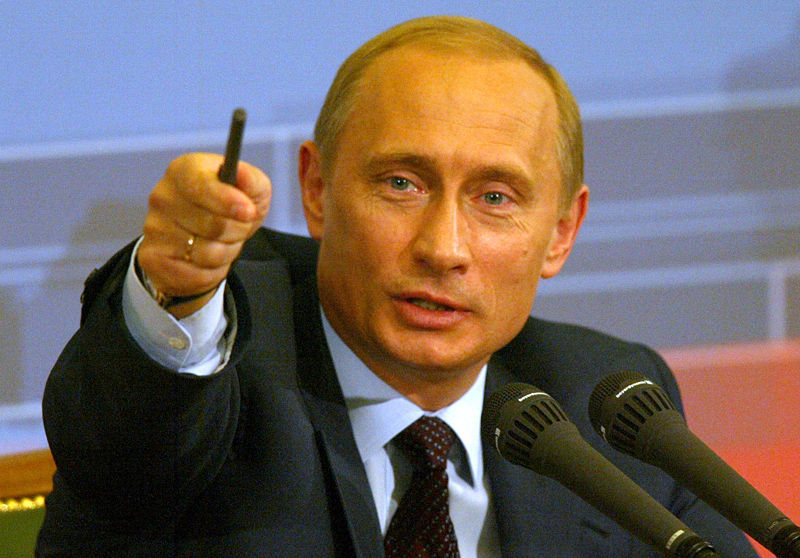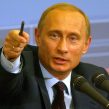
The Great Russian People’s Jamahiriya
Publication: Eurasia Daily Monitor Volume: 8 Issue: 193
By:

Last May, Prime Minister Vladimir Putin announced the formation of an All-Russia People’s Front (Obzherossiysky Narodni Front – ONF) – an amalgamation of masses of different regional and national public organizations around the ruling United Russia party (URP). It was announced the ONF will be open to all who agree with Putin’s vision of the future of Russia and that “all will be absolutely equal partners” (Interfax, May 16). Trade and professional unions joined the ONF, as well as entire municipalities. Last month, the congress of URP declared Putin its candidate to run as president in the elections next March, and approved a list of candidates with President Dmitry Medvedev at the top for parliamentary (Duma) elections next December. Medvedev announced he will step-down and not run for reelection as president to clear the way for Putin. Representatives of the ONF were included in the URP election list, since strict Russian election rules allow only registered parties to field candidates in elections and forbid election blocks. As the URP election list was closed and Putin’s return to the Kremlin assured, the ONF faded out of the news. In a televised interview this week Putin announced the ONF had fulfilled its task of bringing new blood to the Duma; a third of the names on the URP election list are nonparty members from the ONF, and “many of them have every chance to be elected” (https://premier.gov.ru/events/news/16755/).
The Russian Duma is a rubber stamp parliament. Being deputy brings individuals large perks, advantages and prestige, but the personal composition of parliament does not have any political significance in Putin’s authoritarian Russia, while the Duma is not seen by anyone as a seat of independent legislative power. Election results are shamelessly rigged and are not seen by many as legitimate. The public is increasing disenfranchised from government, and this is a serious problem recognized by both Putin and his junior partner Medvedev, who are both actively seeking new ways to legitimize their rule.
Putin has announced that “if the people vote for me [as president next March] and for the URP list headed by Medvedev” a new effective government together with a modern and stable political system will be formed, “based on our national political traditions, not Western advice.” Putin announced that Russia will not be anyone’s “satellite,” unlike former communist Warsaw Pact European nations [now NATO and EU members] that, according to Putin, “cannot appoint a defense minster or military general staff chief without the approval of a foreign [US] ambassador.” Russia must keep its sovereignty, but a fractured parliament will lead to chaos. According to Putin, the creation of the ONF “was not only needed to strengthen the URP to create a capable parliament, but also to help build elements of direct people’s democracy.” Putin is sure it is wrong to follow the West: its market economic system has been discredited by the present economic crisis and with it Western representative multiparty democracy (https://premier.gov.ru/events/news/16755/). Putin wants to build a “direct people’s democracy” instead: something like Col. Muammar Gaddafi’s People’s Libyan Arab Jamahiriya state, or the Soviet and Popular Front communist dictatorships in the USSR and Warsaw Pact nations during the Cold War.
After they officially announced on September 24 a swap of positions of president and prime minister, the tandem of Putin and Medvedev continue to work in close cohesion on building the foundation of the new Great Russian People’s Jamahiriya. In recent days, Medvedev has had two meetings with a select group of “supporters,” including governors, officials, media celebrities and activists. Medvedev announced that as future prime minister after the URP wins the Duma elections, he intended to form a “big government.” It would include representatives of civil society, experts, activists and businessmen – representing the entire Russian nation as the Kremlin sees it, including all shades of political opinion ready to cooperate. This week, Medvedev met members of a public committee of supporters and promised this committee will be turned into a permanent consultative body attached to the Cabinet that will establish a broad dialogue between government and society. Medvedev scolded government ministers for not communicating properly with the people and with governors. (RIA Novosti, October 19).
Lack of cohesion, coordination and simple communication is indeed the scourge of Russia’s corrupt bureaucracy and Medvedev seems to hope to overcome it with the help of the internet, twitter and a public committee of appointed “supporters” turned advisers. Medvedev promised that after the election some of the members of the committee may be promoted to government positions, including the “small government” or Cabinet (RIA Novosti, October 19). Medvedev has promised that the government (“big” and “small”) he will form after leaving the Kremlin will be much revamped, but of course, the ultimate decision on who to make minister will be not his, but Putin’s – the senior tandem partner by virtue and by constitutional power, after he returns as boss to the Kremlin. Putin believes Russia’s economy and political system are inherently unstable and may suddenly collapse “if two to three wrong moves are made.” Putin has said he will not allow any true “ministerial reshuffle,” though “those who have worked long and are tired may be moved” (https://premier.gov.ru/events/news/16755/). Russia’s envoy to NATO, Dmitry Rogozin, flew in from Brussels this week to take part in Medvedev’s committee of supporters meeting. This may inspire hope within NATO headquarters that Rogozin will receive some political appointment in Moscow and leave permanently. NATO insiders told Jamestown they sincerely hope some regular Russian career diplomat will replace the flamboyant nationalist – the sooner, the better.
Medvedev’s proposed divide of governance into a “big” public relations “government” and an inner “small government” that will enjoy real power is consistent with Russian national political tradition and Orwellian in nature like in “Nineteen Eighty-Four” (first published in 1949) by George Orwell. Medvedev talks much of modernizing Russia, but he as well as Putin are in fact hopelessly lost in its dictatorial and totalitarian past.




